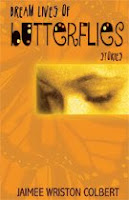Paul Brians' website, Common Errors in English, tells us all those things we thought we were saying right, while the grammar freaks around us were snickering. To be honest there were several in the list that I did not know. Shame on my English major self. Here's a preview of some of the most interesting ones:

“Cache” comes from the French verb cacher, meaning “to hide,” and in English is pronounced exactly like the word “cash.” But reporters speaking of a cache (hidden hoard) of weapons or drugs often mispronounce it to sound like cachet—“ca-SHAY” —a word with a very different meaning: originally a seal affixed to a document, now a quality attributed to anything with authority or prestige. Rolex watches have cachet.
A greedily hoarded treasure is a hoard. A herd of wildebeests or a mob of people is a horde.
The standard expression is “buck naked,” and the contemporary “butt naked” is an error that will get you laughed at in some circles. However, it might be just as well if the new form were to triumph. Originally a “buck” was a dandy, a pretentious, overdressed show-off of a man. Condescendingly applied in the U.S. to Native Americans and black slaves, it quickly acquired negative connotations. To the historically aware speaker, “buck naked” conjures up stereotypical images of naked “savages” or—worse—slaves laboring naked on plantations. Consider using the alternative expression “stark naked.”
Frankly. Sentences beginning with this word are properly admissions of something shocking or unflattering to the speaker; but when a public spokesperson for a business or government is speaking, it almost always precedes a self-serving statement. “Frankly, my dear, I don’t give a damn” is correct; but “Frankly, I think the American people can make their own decisions about health care” is an abuse of language. The same contortion of meaning is common in related phrases. When you hear a public figure say, “to be completely honest with you,” expect a lie.
“Xmas” is not originally an attempt to exclude Christ from Christmas, but uses an abbreviation of the Greek spelling of the word “Christ” with the “X” representing the Greek letter chi. However, so few people know this that it is probably better not to use this popular abbreviation in religious contexts.
R.S.V.P. stands for the French phrase Répondez s’il vous plaît (“reply, please”), so it doesn’t need an added “please.” However, since few people seem to know its literal meaning, and fewer still take it seriously, it’s best to use plain English: “Please reply.” It is a mistake to think that this phrase invites people to respond only if they are planning to attend; it is at least as important to notify the person doing the inviting if you cannot go. And no, you can’t bring along the kids or other uninvited guests.
 I just finished reading Dream Lives of Butterflies by Jaimee Wriston Colbertson. I love the melodic sentences and eloquent language of her writing. I felt very engaged by her novel. Most of it is set Saint Louis and some in Hawaii.
I just finished reading Dream Lives of Butterflies by Jaimee Wriston Colbertson. I love the melodic sentences and eloquent language of her writing. I felt very engaged by her novel. Most of it is set Saint Louis and some in Hawaii.  The only criticism I have of this book is that the connections between stories were not strong enough. Some of the characters fell off never to reappear again. I can't handle that. If I am given partial understanding, I must have full disclosure (or at least really big hints). You can't tell me Lucy had a troubled childhood graffitiing rocks and then dismiss her. You can't tell me a story about a woman getting groped on a plane by a stranger and drop her to be never mentioned again. Argh. Don't get me wrong, the interweaving that did take place was intricate and extremely meaningful, but unaddressed concerns can become a little too frustrating.
The only criticism I have of this book is that the connections between stories were not strong enough. Some of the characters fell off never to reappear again. I can't handle that. If I am given partial understanding, I must have full disclosure (or at least really big hints). You can't tell me Lucy had a troubled childhood graffitiing rocks and then dismiss her. You can't tell me a story about a woman getting groped on a plane by a stranger and drop her to be never mentioned again. Argh. Don't get me wrong, the interweaving that did take place was intricate and extremely meaningful, but unaddressed concerns can become a little too frustrating. 




